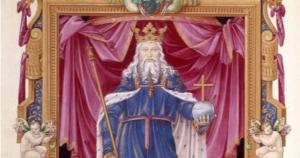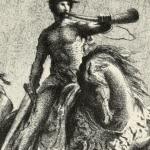
Leaders: We Need Them
Choosing a leader is hard and our present few decades of electoral mess is not an encouraging example. What about leaders in churches? The Bible gives us some requirements, generally ignored, yet still there. A great many organizations in higher education are looking for new leaders as Boards discover things are not going as well as advertised. What are the characteristics of a leader who can actually lead and people follow who are not just being paid.
The times coming will require an inspiring leader, not just one with power, a plan, and purse strings. The good news is that thinking about the Bible standards inspired many good works on leaders in peril and the qualities they must have. Christians have had centuries to write something better than a leadership manual: we wrote leadership epics.
The Song of Roland on Who To Pick
The Song of Roland is great fun (try Patricia Terry as a translation), think Homer after his baptism and with a good editor. The story teaches courage, heroism, and other leadership qualities. Nobody just now is going to look at the epic for how to choose a leader, though heriditary monarchy surely looks less foolish just now. The Pythons might mock a Lady in a Lake throwing a sword at Arthur as a way of choosing a leader, but this is sensible compared to counting votes in Broward County. If you wish to know who to pick, or who not to pick or to gently ask to find a new line of work, The Song of Roland is a great text.
The poem may be about Roland, but it begins and ends with the great King Charles, Charlemagne. Immediately, one sees why Charles made the Empire great again when so many had failed for centuries before him. Good King Charles attracted heroes like Roland and then was comfortable when the epic action centered on someone other than himself.
We need leaders that do not mind if the song is not about them.
Leaders lead and in the very best organizations this will not be merely because he or she pays them or has the power to fire them. Leaders produce nobility that are loyal and get the mission when the leader is not around. Charles, a vigorous old man, has created a culture, a legend, in his rule and his court is ennobled. Anthony Trollope once described a character as the too rare nobleman who was noble.
Isn’t it time we actually had leaders who led and produced heroes like Roland and not a sea of administrative functionaries.
Any leader can give out titles. A great leader enobles his nobles.
Don’t Hand Out Titles, Ennoble
How did Charlemagne do this?
He loved his men. When Roland dies (after a few centuries does one need a spoiler alert?), Charlemagne (often a Christ figure) goes through a passion that reminds of The Stations of the Cross. He sees Roland dead and faints three times imitating Christ on the Way to Calvary. He loved his liegeman and his men could see it. When he finds his man dead on the field:
“He takes Count Roland and holds him in his arms
Falls with him fainting, his grief so racks his heart.”
This will not be found in any Human Resources manual, but it is the way of Jesus. Having loved his own, the Lord Jesus loved them to the end. The great leader will build not just an inner circle, but a movement based on a vision, service, and loyalty.
Charlemagne will not allow the bodies of his men to be harmed, honors them in every way, and so receives loyalty in return. A bad leader will talk about loyalty when he is demanding it. The good leader will have an inner circle of loyal friends, but the great leader will inspire her whole organization, nation, or people.
This begins when the leader allows his other leaders to . . . Lead.
In battle Charles says:
“I’ve faith in you, my Lords; I hold you dear . . .”
A leader has faith in his folks, has their backs, and when the battle comes is in the front doing what must be done. Charlemagne does not hire mercenaries to fight for him. He goes to war and men who love him, follow.
”In loyal friendship they fight on side by side “
Let’s find leaders like Charlemagne: a man who weeps for his team and puts his people over his own person, notably someone like Jesus.
Lord, have mercy on all of us and make us more like You are.












